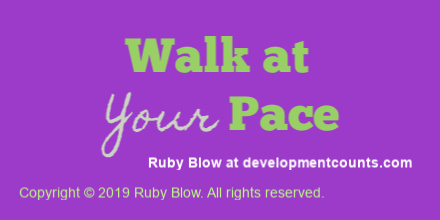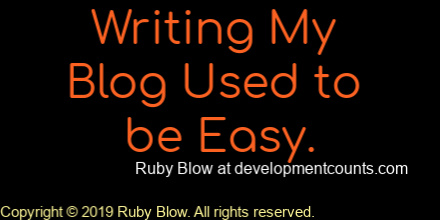Why I Don’t Like Talking on the Phone
I was watching a drama on HBO called The Leftovers and one character said to another “I don’t know how to talk to you yet.” They had just been on their fourth date and one had made a joke…there was some concern that the joke had offended the other. Those words struck me: “We don’t know how to talk to one another yet”…they stayed with me.
This statement was the answer to a question I have been considering for a while. A question that I’ve asked myself when I consider how much I dislike talking on the telephone. I know that seems random and an unexpected topic for a blog post. But for me it goes to the heart of intimacy and how it is cultivated:
- They amount of time it takes for people to truly know one another well.
- The time spent in person vs over the phone.
- What you learn about someone from being in their presence.
- The sharing of the experiences…the sharing of aspects of self, big or small.
- The observation of preferences.
- The telling of one’s stories.
- It’s all of the things we say without saying them verbally.
Technology and Communication
As a teenager in the pre-mobile phone days…I loved lengthy conversations on the telephone. In fact, like many teens at that time (1980’s/early 90’s), I had an entire relationship that only took place over the telephone. There is a closeness that people can develop over the phone. There is a self consciousness that can be stripped away. It is also a medium – just like the internet – where people can more easily pretend to be someone or something they are not.
There is a distance that allows lies to take root without being detected.
I think body language is critical to communication. While you can see body language over video conference…video calls are not always convenient. They are best for:
- business meetings;
- distance counseling, supervision & consultation;
- grandparents talking to grandchildren;
- and lovers who are separated from one another.
In most cases, video calls are for people who already know one another or for people who have a clear agenda and purpose for utilizing that medium.
As technology impacts culture…I am seeing two schools of thought when it comes to communication preferences (callers vs. texters). For some of us telephone calls are fading away.
I only talk to a few people regularly and comfortably on the phone. Those people are my mother, my sister, and my best friend. I think it is because they are constants. They know me and I know them. We can pick up and talk for a few minutes or for an hour and I can be me and they can be themselves. In other words – “We know how to talk to one another.” Every now and then I will have a lengthy telephone conversation with someone who I have not spoken with in a long time and it feels like a rhythm…like we are sitting down as we once did over lunch and we are catching up.
Trust, Respect & Admiration
Closeness is something that can be lost and picked up again as long as trust has not been broken. If trust, respect and admiration are still present in the minds of both, then even relationships with very little contact can be as comforting as those you with whom you communicate regularly.
Being a therapist has given me a unique opportunity to have thousands of hours of deeply personal, intimate dialogue with others. Of course, in therapy the topic is focused in the direction of the client and their sharing about themselves. It does not mean that they don’t get to know me. However, the way they know me is different. They are not necessarily burdened with concerns about the therapist. Nor should they be…this is part of the gift of therapy.
I have found nowadays, going into this 20th year of practice, that I have low tolerance for meaningless dialogue in my day to day life. It does not mean that I don’t talk about light things or have fun banter. It means that I find that it is more difficult to remain in contact with people when it appears that is all that they are willing to offer. When I recognize that they will only invest their time on the phone and not in person.
Honesty & Vulnerability
Increasingly, I only want to be in conversations with people who are honest. I know that as human beings…it would be impolite to be honest all of the time. I am not talking about the characteristic of offering unsolicited and highly opinionated advice that is devoid of concern for others. I am not talking about the “in your face” honesty that is laced with aggression that gets passed along in viral videos or that we see in pundits on news networks when they are shouting at one another. I am more interested in the mutual sharing of quiet truths.
I am only interested in talking to people who are also vulnerable in their honesty…people who want to hear what others have to say as much as or more than wanting to hear themselves talk. In the development of new relationships or the repairing of old ones…we must take time to hear one another. It takes time and experience with someone to know what their words mean to them and to understand their values, their point of view and their intention.
Intimacy is a valuable thing…it is valuable because it helps us know that we are not alone in the world. It is valuable because “being truly known” by someone and also being accepted by them is a form of confirmation. It confirms that you are “okay”…when people feel that they are truly known and still “okay”…then maybe they don’t have to believe the pain inside that sometimes makes them feel that they are not.
The Core Conditions
These are the core conditions of therapy: genuineness, unconditional positive regard, and authenticity. Carl Rogers discussed it and practiced it…he made it look simple…so simple that some people think of it as doing nothing. But for those who have rarely or never had it…it is everything.
Few people can provide a space of emotional safety like a very effective humanistic therapist. It becomes part of who we are not just within their professional work but also personally. In fact, some people are drawn to therapists as friends and mates for that reason. An essential act of self care for the therapist is not giving so much of themselves away by behaving personally they way they do professionally (i.e. not requiring anything in return). It is important to secure relationships where you are also being “held”…where you are not the only one doing the “holding.”
I’ve said it before and I will say it again: Reciprocity is key. So…“No” I don’t want to talk on the phone…unless you are someone who is invested; someone who truly listens, is interested, and makes an effort.
Copyright © 2017 Ruby Blow. All rights reserved.
Share your thoughts on Linkedin, Facebook, Twitter or log in to one of your accounts below to comment. Subscribe to my YouTube channel





